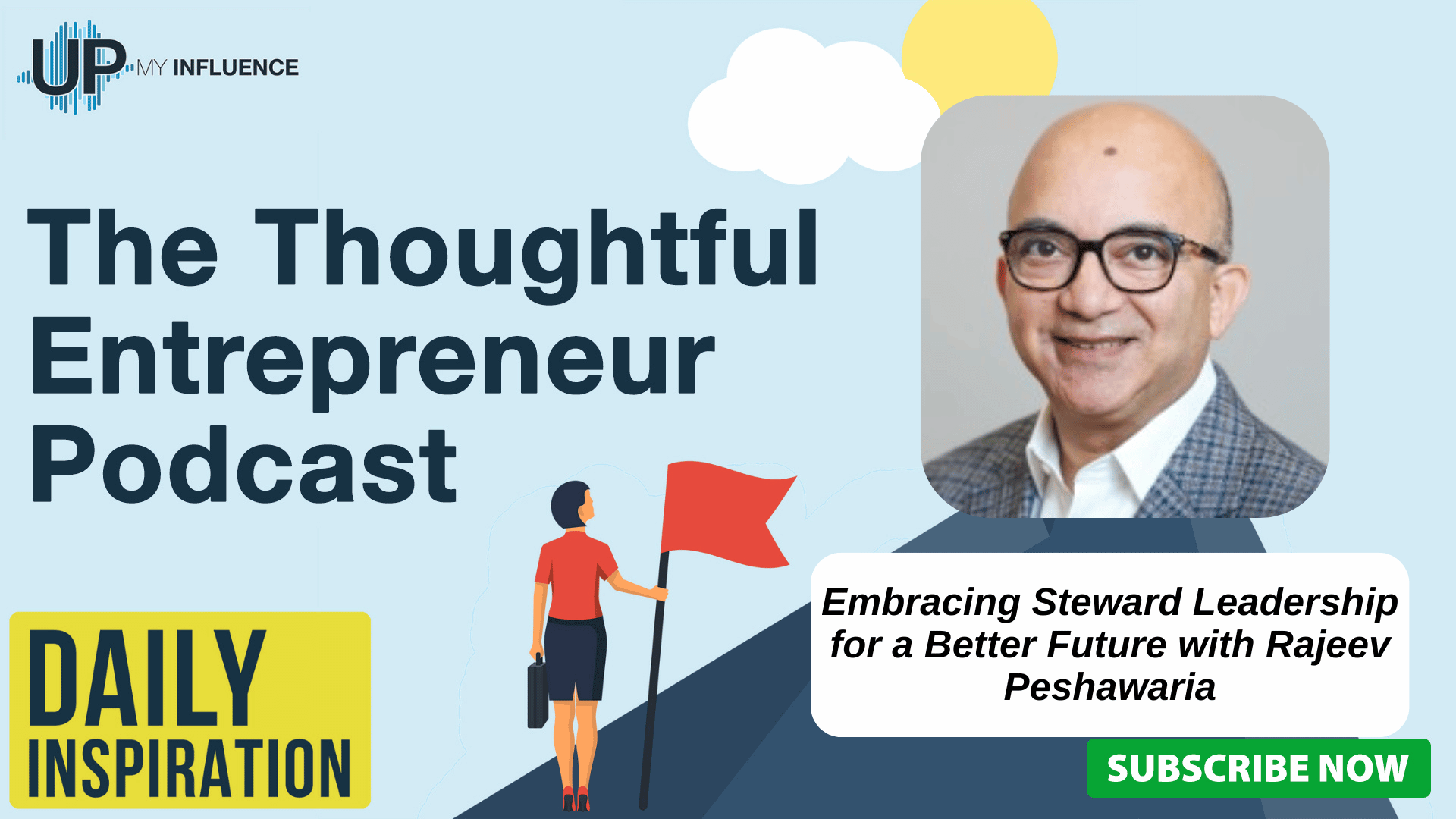THE THOUGHTFUL ENTREPRENEUR PODCAST
 Understanding the Current Challenges in Sustainability
Understanding the Current Challenges in Sustainability
In a recent podcast episode, we had the pleasure of hosting Rajeev Peshawaria, the president and founder of Leadership Energy Consulting and the CEO of Stewardship Asia Center. Rajeev, also the author of “Sustainable Sustainability,” shared his profound insights on the need for a paradigm shift in how businesses approach sustainability. This blog post delves into the key themes discussed during the episode, offering actionable advice and detailed explanations to guide our listeners towards embracing steward leadership and achieving sustainable success.
Rajeev highlighted significant issues in the current landscape of sustainability, such as the gap between rhetoric and real action, often resulting in greenwashing rather than genuine impact. He also addressed the common misconception that sustainability is a cost or compliance problem, which limits the potential for businesses to see it as an opportunity for innovation and growth. By shifting this perspective, companies can unlock new avenues for creating value while addressing social and environmental challenges. At the heart of Rajeev's message is the concept of steward leadership, which emphasizes the importance of considering the broader impact of business decisions on society and the environment.
Rajeev outlined several core principles that define steward leadership, including interdependence, a long-term view, taking ownership, and creative resilience. He shared real-world examples like the Tata Group and Faber-Castell, which have integrated sustainability into their core business models, demonstrating that ethical practices can coexist with commercial success. Rajeev emphasized the need to change the narrative around sustainability, viewing it as an opportunity to innovate and differentiate in the market. By declaring a collective purpose, integrating sustainability into business strategy, fostering a culture of ownership and accountability, and innovating for sustainable solutions, businesses can achieve superior shareholder returns while making a positive impact on society and the environment. For more in-depth discussions and inspiring stories of steward leadership, be sure to tune into Rajeev's podcast, “Sustainable Sustainability.”
About Rajeev Peshawaria:
He is the CEO of Stewardship Asia Center (SAC) in Singapore and the Founder President of the Leadership Energy Consulting Company based in Seattle, WA. He is also the author of several books including “Too Many Bosses, Too Few Leaders,” “Be the Change,” and “Open Source Leadership.” With extensive global experience in Leadership Development and Corporate Governance, his focus lies in streamlining business strategy, organizational architecture, and culture.
Previously, he served as the CEO of the Asia-based Iclif Leadership & Governance Center, and held roles as the global Chief Learning Officer at Morgan Stanley and The Coca-Cola Company. He has also held senior positions at American Express, HSBC, and Goldman Sachs. He holds an MBA from Webster University in Vienna, Austria, and a Bachelor of Commerce from the University of Bombay, India.
About Stewardship Asia Center:
We help business and government leaders, investors, and individuals accelerate leadership action on environmental and social challenges through catalytic knowledge and advisory.
We are part of the Temasek Trust ecosystem with a shared purpose of building a better future for every generation. Temasek Trust is the philanthropic arm of Singapore based global investor Temasek Holdings.
Apply to be a Guest on The Thoughtful Entrepreneur: https://go.upmyinfluence.com/podcast-guest
Links Mentioned in this Episode:
Want to learn more? Check out Stewardship Asia Center website at https://www.stewardshipasia.com.sg/
Check out Stewardship Asia Center on LinkedIn at https://sg.linkedin.com/company/stewardship-asia-centre
Check out Rajeev Peshawaria on LinkedIn at https://sg.linkedin.com/in/rajeevpeshawaria
Don’t forget to subscribe to The Thoughtful Entrepreneur and thank you for listening. Tune in next time!
More from UpMyInfluence:
We are actively booking guests for our The Thoughtful Entrepreneur. Schedule HERE.
Are you a 6-figure consultant? I’ve got high-level intros for you. Learn more here.
What is your #1 Lead Generation BLOCKER? Take my free quiz here.
Want to learn more about all the podcasts managed by UpMyInfluence? Opt in here.


